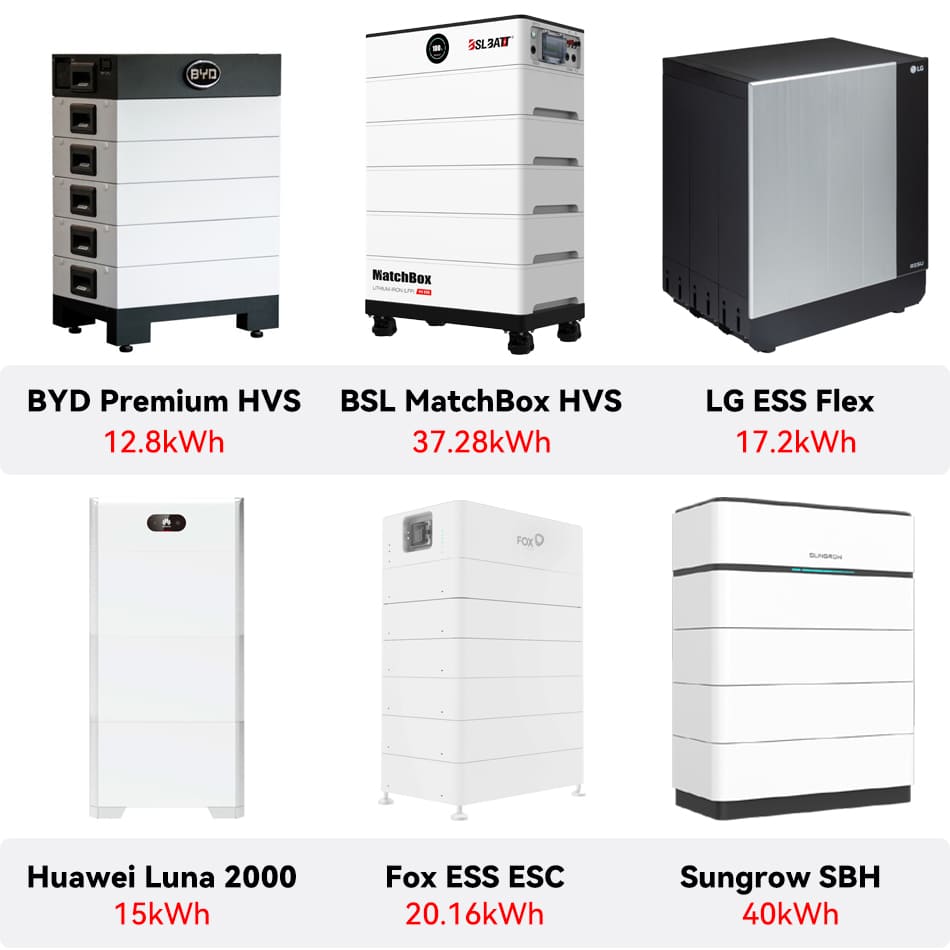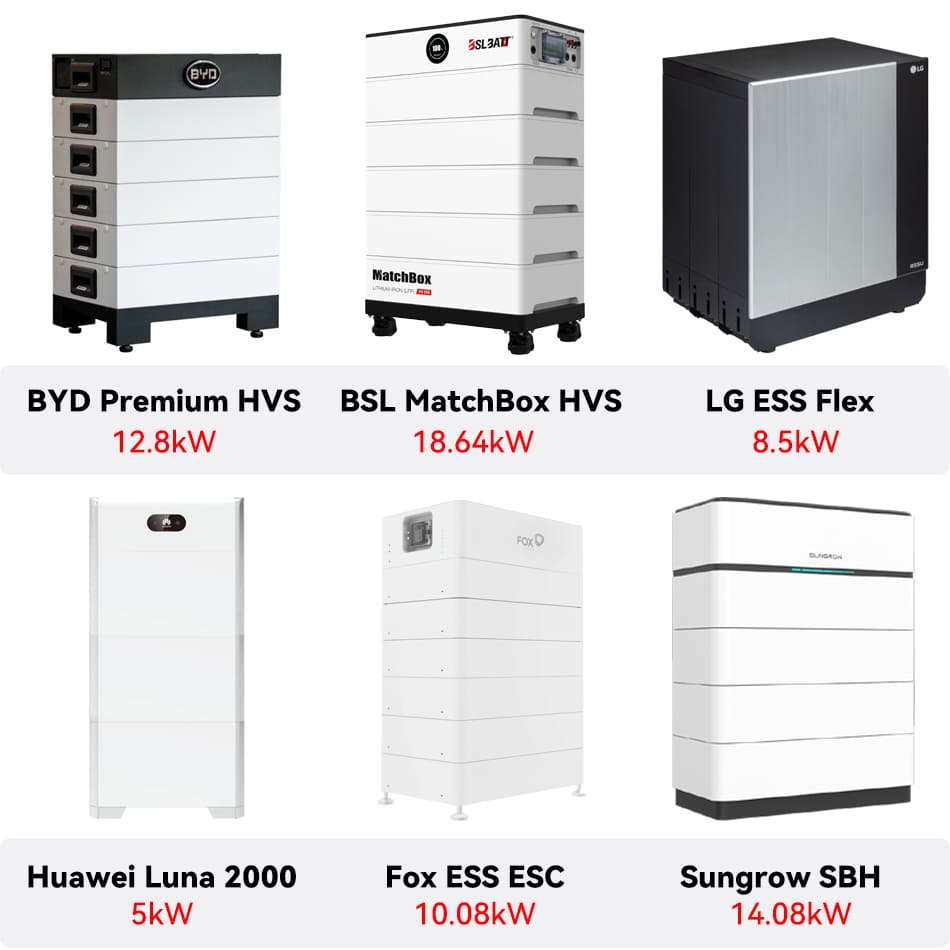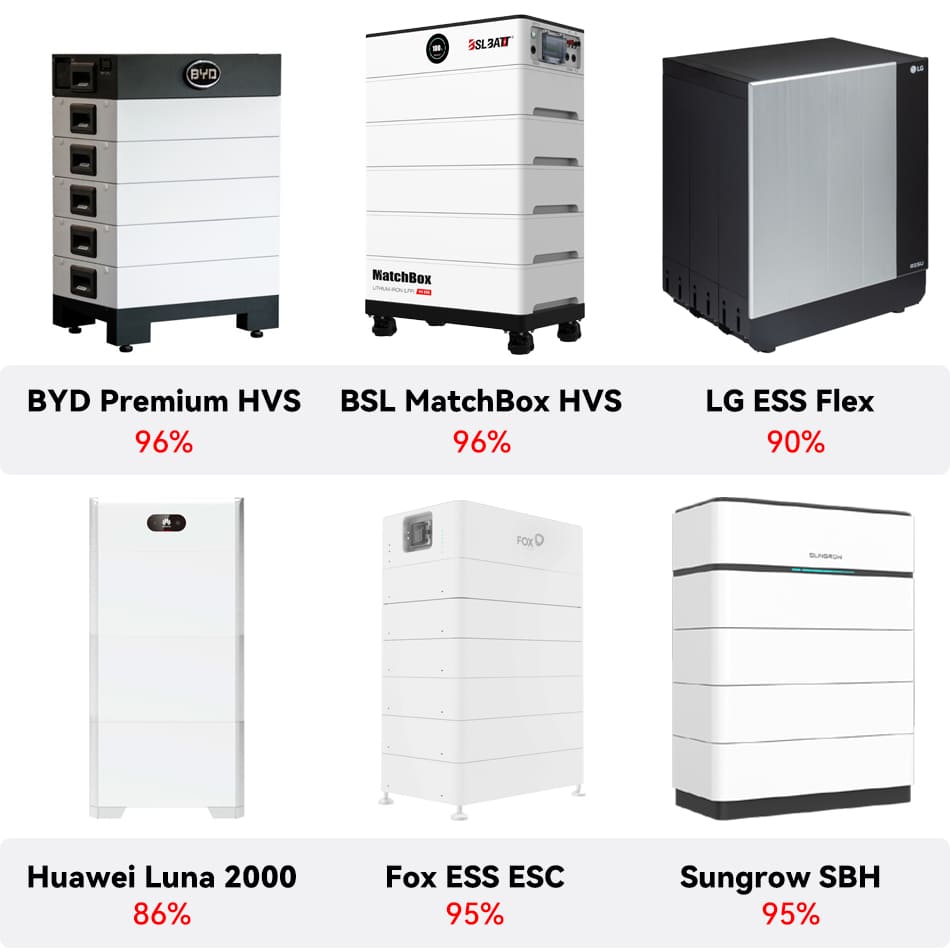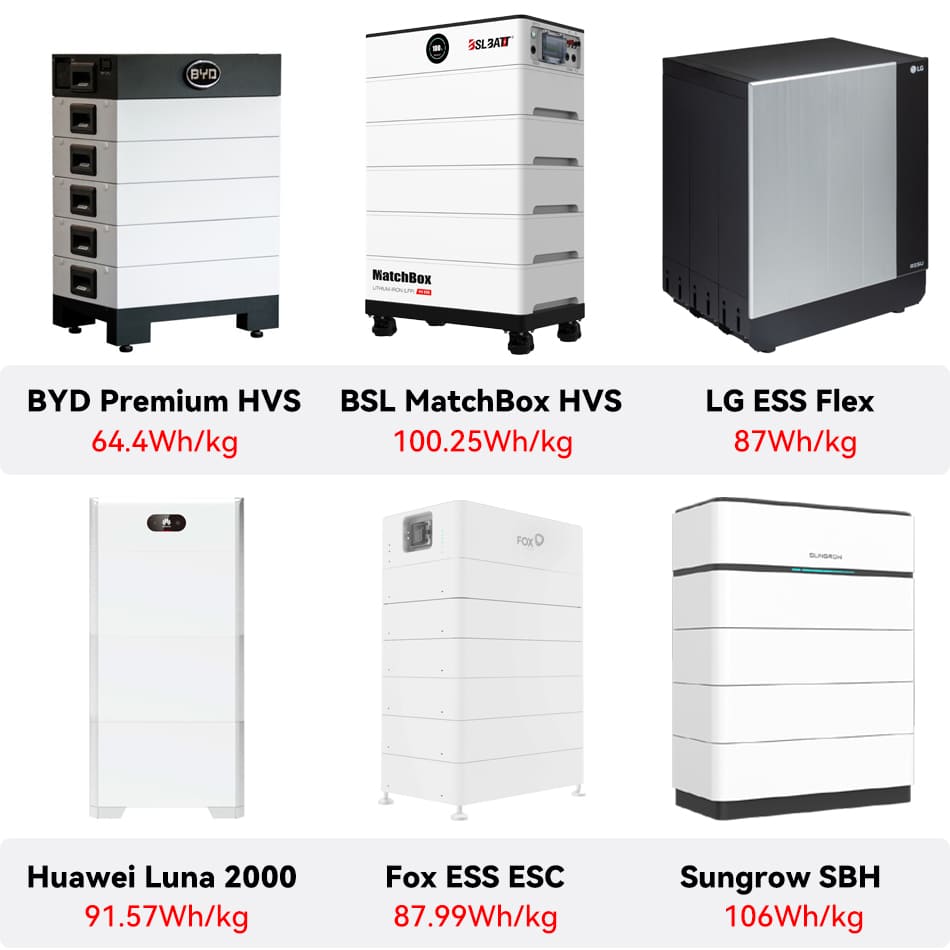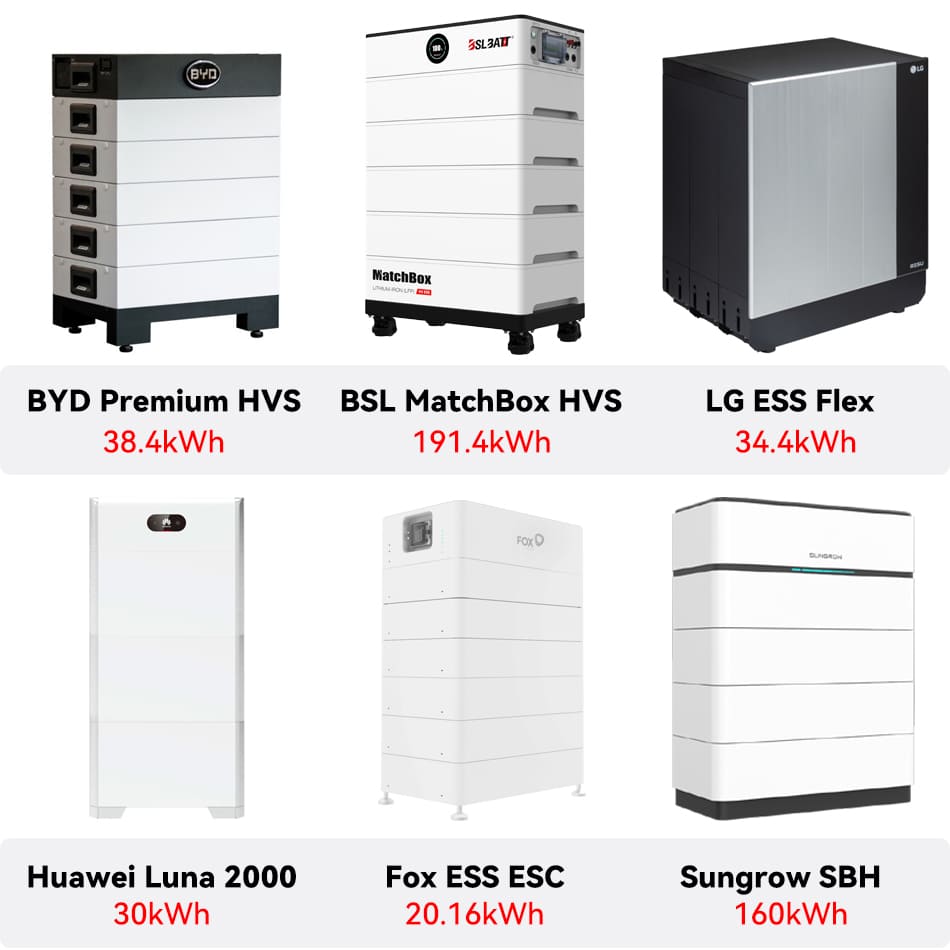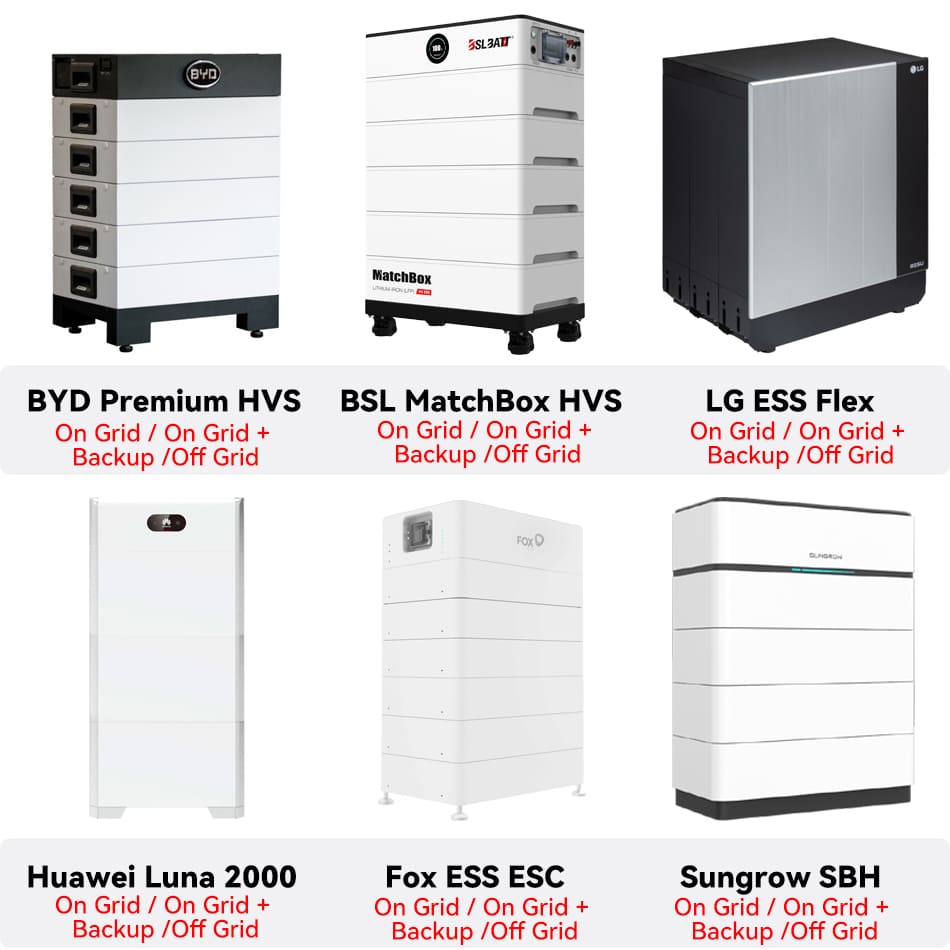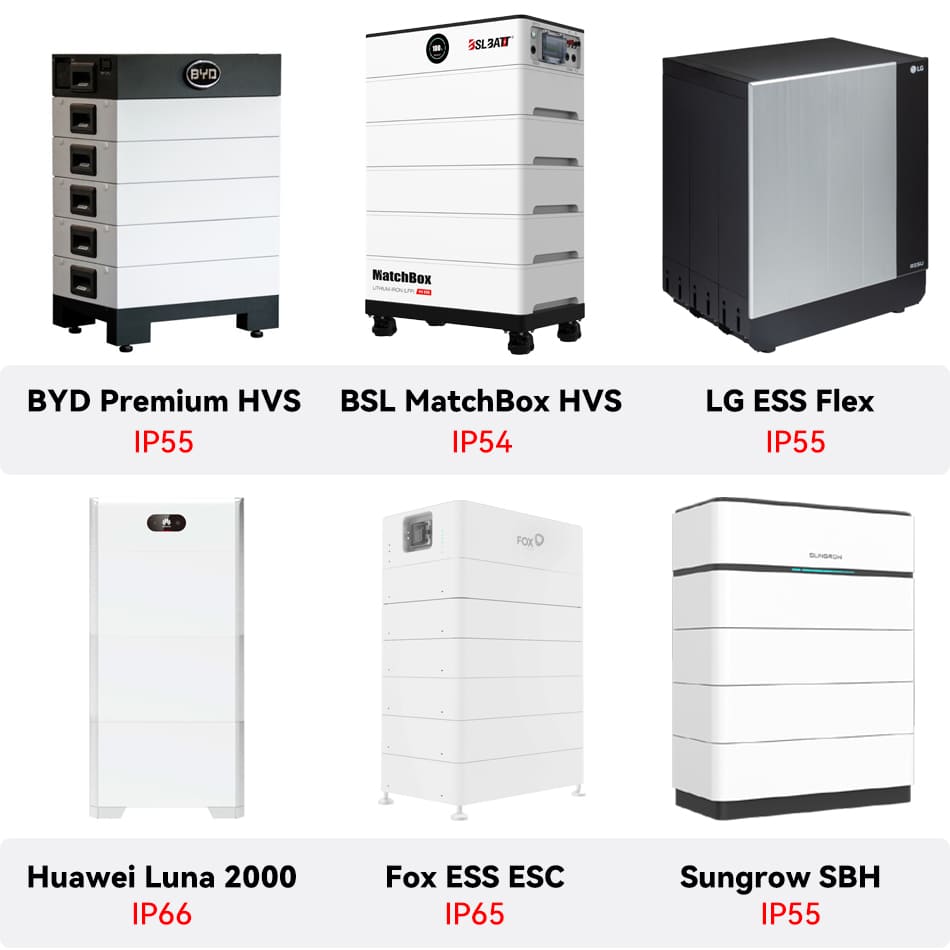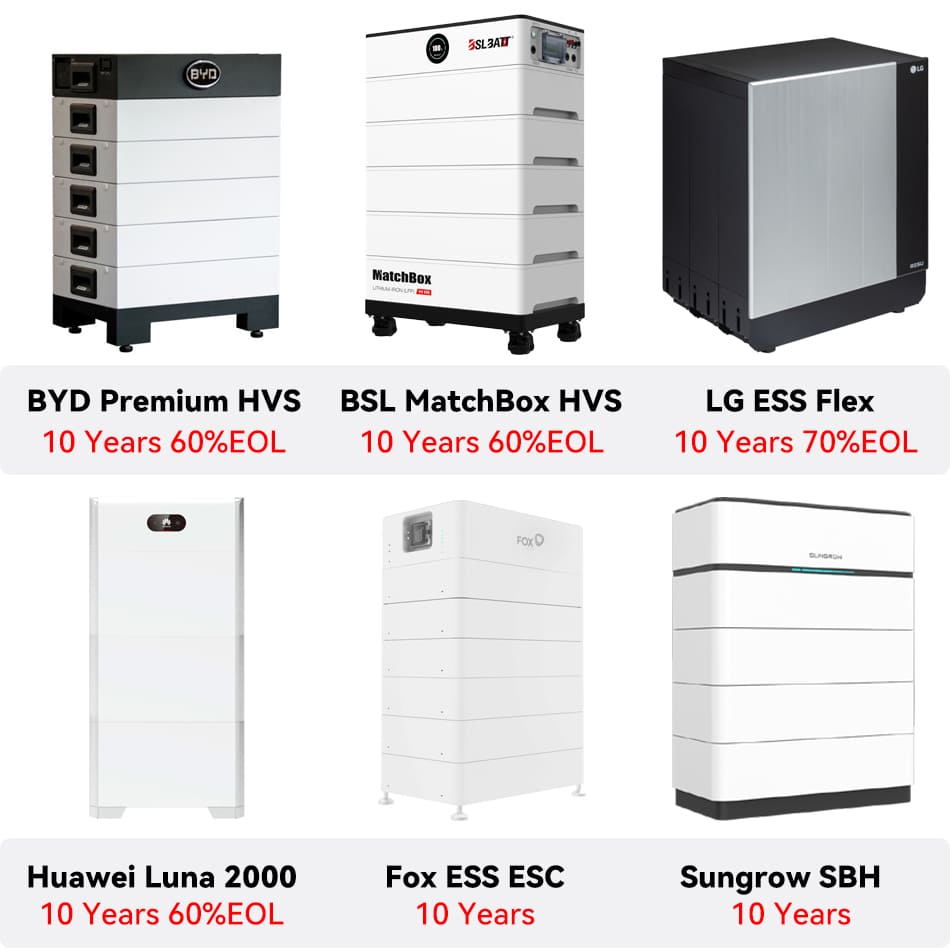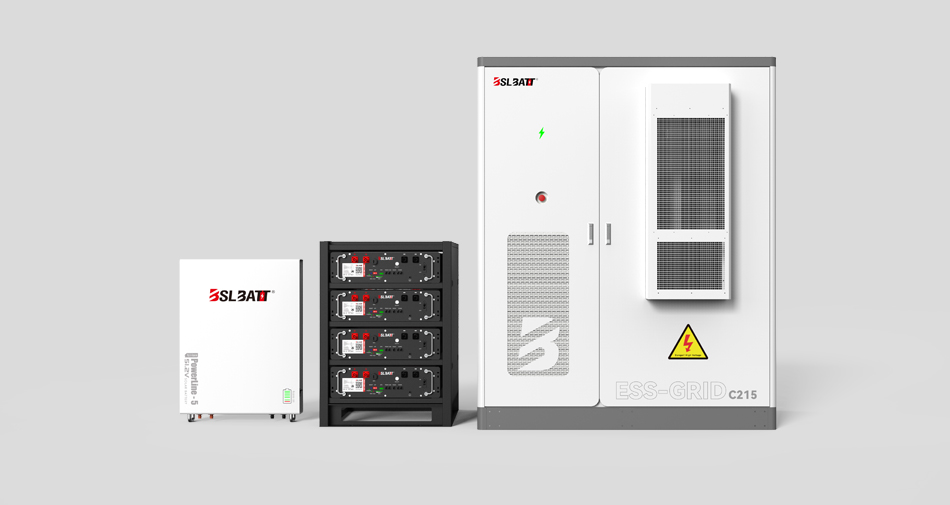High-voltage lithium battery is an energy storage battery that realizes the high-voltage DC output of the system by connecting multiple batteries in series. With the growing demand for renewable energy, and people’s focus on the safe and efficient conversion of solar energy systems, high-voltage lithium batteries have become one of the most popular energy storage solutions in the market.
In 2024, the trend of high-voltage residential storage system is obvious, a number of energy storage battery manufacturers and brands have launched a variety of high-voltage lithium solar batteries, these batteries not only in the capacity, cycle life and other aspects of a significant breakthrough, but also in the safety and intelligent management continue to improve. In this article, we will provide you with an overview of some of the most outstanding high-voltage lithium batteries in 2024, to help you better choose the home battery backup system that best suits your needs.
Standard 1: Useful Battery Capacity
Useful battery capacity refers to the amount of power you can charge in the battery for later use at home. In our 2024 comparison of high-voltage lithium batteries, the storage system offering the highest useful capacity is the Sungrow SBH battery with 40kWh, followed closely by the BSLBATT MatchBox HVS battery with 37.28kWh.
Standard 2: Power
Power is the amount of electricity your Li-ion battery can deliver at any given time; it is measured in kilowatts (kW). By knowing the power, you can know the number of electrical devices you can plug in at any one time. In the 2024 high-voltage lithium-ion battery comparison, the BSLBATT MatchBox HVS once again stands out at 18.64 kW, more than twice as much as the Huawei Luna 2000, and the BSLBATT MatchBox HVS can reach a peak power of 40 kW for 5s.
Standard 3: Round-trip Efficiency
Round-trip efficiency refers to the ratio between the amount of energy you need to charge the battery and the amount of energy available when you discharge it. It is therefore called “round-trip (to battery) and return (from battery) efficiency”. The difference between these two parameters is due to the fact that there is always some energy loss in converting power from DC to AC and vice versa; the lower the loss, the more efficient the Li-ion battery will be. In our 2024 comparison of high-voltage lithium batteries, the BSLBATT MatchBOX and BYD HVS ranked first with 96% efficiency, followed by Fox ESS ESC and Sungrow SPH at 95%.
Standard 4: Energy Density
Generally speaking, the lighter the battery and the less space it takes up, the better, while maintaining the same capacity. However, most high-voltage LiPoPO4 batteries are divided into modules whose size and weight can easily be handled by two people; or in some cases even by one person.
So here we mainly compare the mass energy density of each high-voltage lithium battery brand, mass battery energy density refers to the ability of the battery to store energy (also known as specific energy), which is the ratio of the total energy stored in the battery to its total mass, i.e., Wh/kg, which reflects the size of the energy that can be provided per unit of mass of the battery. Calculation formula: energy density (wh/Kg) = (capacity * voltage) / mass = (Ah * V)/kg.
Energy density is used as an important parameter to measure the performance of batteries. Generally speaking, high energy density lithium-voltage batteries are able to store more energy under the same weight or volume, thus providing longer running time or range for the equipment. Through calculation and comparison, we found that the Sungrow SBH has a super high energy density of 106Wh/kg, followed by the BSLBATT MacthBox HVS, which also has an energy density of 100.25Wh/kg.
Standard 5: Scalability
The scalability of your energy storage system allows you to increase the capacity of your Li-ion battery with new modules without any inconvenience when your energy demand grows. Therefore, it is important to know what capacity your storage system can be expanded to in the future.
In the comparison of high-voltage lithium batteries in 2024, the BSLBATT MatchBox HVS offers the greatest versatility in terms of scalable capacity, up to 191.4 kWh, followed by the Sungrow SBH with a scalable capacity of 160kWh.
This, given that we are considering batteries that can be connected to a single inverter. However, it is important to note that most battery manufacturers allow multiple inverters to be installed in parallel, thereby also expanding the total storage capacity of the energy storage system.
Standard 6: Backup and Off-grid Applications
In times of energy instability and the threat of global power outages, more and more people want their equipment to be able to cope with unforeseen events. Therefore, having applications such as emergency power output or backup, or the ability to operate off-grid in the event of a power outage, is a very valuable feature.
In our 2024 comparison of high-voltage lithium batteries, all have emergency or backup outputs, and It is also capable of supporting grid-connected or off-grid operation.
Standard 7: Level of Protection
Manufacturers of energy storage systems expose their products to a range of tests to demonstrate their protection against a range of environmental factors.
For example, in our 2023 comparison of high-voltage lithium batteries, three (BYD, Sungrow, and LG) have an IP55 protection level, and BSLBATT has an IP54 protection level; this means that, while not waterproof, dust cannot interfere with the proper operation of the device and also protects against water at a specific pressure; this allows them to be installed inside the house or in a garage or shed.
The battery that stands out in this criterion is the Huawei Luna 2000, which has an IP66 protection rating, making it impervious to dust and powerful water jets.
Standard 8: Warranty
A warranty is a way for a manufacturer to show that it has confidence in its product, and it can give us clues about its quality. In this regard, in addition to the warranty years, it is important to note how well the battery will operate after those years.
In our 2024 comparison of high-voltage lithium batteries, all models offer a 10-year warranty. But, LG ESS Flex, stand out among the rest, offering 70% performance after 10 years; 10% more than their competitors.
Fox ESS and Sungrow, on the other hand, have not yet released specific EOL values for their products.
Read More: High Voltage (HV) Battery Vs. Low Voltage (LV) Battery
FAQ on High Voltage Lithium Batteries
What is a high voltage lithium battery?
High-voltage battery systems typically have a rated voltage of over 100V and can be connected in series to increase voltage and capacity. Currently, the maximum voltage of high voltage lithium batteries used for residential energy storage does not exceed 800 V. High voltage batteries are generally controlled through a master-slave structure with a separate high voltage control box.
What are the advantages of high voltage lithium battery?
On the one hand, high-voltage home energy storage system compared to low-voltage safer, more stable, more efficient system. The hybrid inverter circuit topology under high voltage system is simplified, which reduces the size and weight, and lowers the failure rate.
On the other hand, when using batteries of the same capacity, the battery current of a high-voltage energy storage system is lower, which causes less disruption to the system and reduces the energy loss due to the temperature increase caused by the high current.
Are high-voltage lithium batteries safe?
High-voltage lithium batteries used for residential energy storage are usually equipped with an advanced battery management system (BMS) that monitors the temperature, voltage and current of the battery to ensure that the battery operates within safe limits. Although lithium batteries were once a safety concern in the early days due to thermal runaway issues, today’s high-voltage lithium batteries greatly improve the safety of the system by increasing the voltage and decreasing the current.
How to choose the right high-voltage lithium battery for me?
When choosing a high-voltage lithium battery, the following factors should be considered: system voltage requirements, capacity requirements, tolerable power output, safety performance and brand reputation. It is especially important to choose the right battery type and specification according to the needs of the specific application.
What is the cost of high voltage lithium batteries?
High-voltage solar batteries will be higher in cost than the currently commonly used low-voltage solar cells due to the higher requirements for cell consistency and BMS management capability, a relatively high technology threshold, and the fact that the system employs more components.
Post time: May-08-2024









